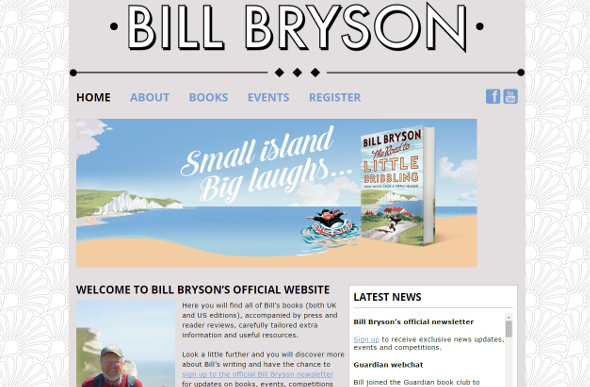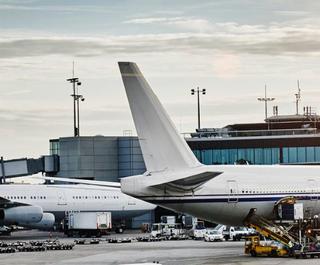
Define success as a travel writer. Is it making enough money off your stories to eat? Seeing your work published in notable magazines? Or travelling the world off the back of your writing?
When I started writing for the travel industry I found it tough knowing where to begin let alone what appearance success would take.
For those aspiring, struggling and emerging travel writers out there, here are a few lessons I've learned during my progression from unpaid freelancing to getting paid to visit and write about destinations around the world.
Build Your Connections
 Community groups such as Travel Massive connect writers all around the world (Image: Website by Massive Platform)
Community groups such as Travel Massive connect writers all around the world (Image: Website by Massive Platform)
This is one of the first steps you should take.
Building connections doesn't mean collecting business cards. Join city-based community groups, attend network events with travel writers and become a member of travel societies.
Use these opportunities to meet people in the industry and set up future collaborative opportunities.
Promote Yourself & Your Art
 Even established travel writers like Bill Bryson still need to promote themselves and their work (Image: Website by Transworld Publishers)
Even established travel writers like Bill Bryson still need to promote themselves and their work (Image: Website by Transworld Publishers)
Art or product, it doesn't matter what you call your writing, it needs proactive marketing to have any hope of reaching an audience.
Build a website or online portfolio, engage with connections and groups on LinkedIn, maintain a social media presence, and celebrate your achievements with a mother's shameless pride.
Gain Qualifications
 Travel writing courses can be done externally or in person (Image: Getty)
Travel writing courses can be done externally or in person (Image: Getty)
Exceptional writing comes more through experience than schooling, but the right form of study can certainly file down any ugly points.
Travel courses and workshops are available all around Australia. I recommend any run by current or former travel writers.
Find A Steady Paycheck
 Sometimes you need to settle in to a gig to get that next paycheck (Image: Getty)
Sometimes you need to settle in to a gig to get that next paycheck (Image: Getty)
A lot of freelance writers that live off their writing usually maintain one or more regular projects. This might be contributing to a weekly magazine or providing destination content to travel retailers.
It's not the most glamorous work, but it's your bread and butter: easy and quick jobs that provide a large chunk of annual income. Find these opportunities early and hold onto them.
Always Travel As A Writer
 Don't just visit places. Create unique experiences and stories from them (Image: Getty)
Don't just visit places. Create unique experiences and stories from them (Image: Getty)
It's a hazard of the occupation. Just as film critics can't watch a movie without analysing every scene, so too will you find yourself constantly identifying story ideas while travelling.
We should all try to reach and embrace this point as soon as possible. Few editors care about where you're going – someone's been there already. What makes your story valuable is what you experience and learn.
Sick of working? How I Quit My Job To Travel
Flying a lot? Insider Tips For Scoring A Box Seat
Get Used To Budget Travel
 Writer's fuel (Image: Getty)
Writer's fuel (Image: Getty)
Only two percent of writers in Australia make enough to live solely off their writing. If we focus in on the travel genre the percentage is slightly higher, but not much.
If you plan on ditching the day job, prepare to discover a new level of frugal. We're talking couch surfing, canned meals and buses instead of planes. But keep writing and your published stories will start supplementing your spending or better.
Find Your Voice
 Gonzo journalist Hunter S Thompson used to type out famous novels. "I wanted to learn from the best I guess." - Hunter S Thompson (Image: @lunar_liquids)
Gonzo journalist Hunter S Thompson used to type out famous novels. "I wanted to learn from the best I guess." - Hunter S Thompson (Image: @lunar_liquids)
This may take one story or one hundred. In the meantime it's alright to borrow the voices of your favourite writers; however, you'll need to eventually figure out what separates your writing.
Having a unique and engaging voice can help your stories stand out, whether it's informative, humorous, reflective or a combination. Keep writing and experimenting to find which one works best.
Value Experience Over Inhibition
 The best stories come from saying yes (Image: Getty)
The best stories come from saying yes (Image: Getty)
Don't settle on hotels and tourist hubs. Get out on the ground level and explore by any means possible. Say yes to bungee jumping, bar crawls and local tours.
You want to leave a destination having satisfied every sense and learned more through asking questions than researching online.
Diversify Your Art
 Become a dual or triple threat (Image: Getty)
Become a dual or triple threat (Image: Getty)
Some will scream blasphemy, but we'd be fools to limit ourselves. Adding photography and/or videography to your portfolio is a great way to make yourself recognisable in the travel industry.
To Pitch Then Write Or Write Then Pitch?
This is the unanswerable question. It comes down to which one you consider your strongest asset. If you're not good at pitching, but don't want to spend hours writing for a rejection, send your pitch with a couple of opening paragraphs.
Regardless, you need to become acquainted with the publications you're targeting. Read their stories and submission guidelines to know what they like. The majority of stories get rejected based on unsuitability.










